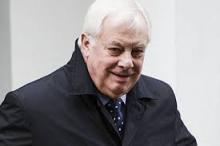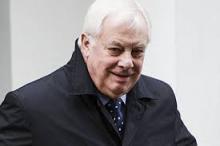Trump and Afghanistan: Old Problems and New Dangers
Keeping track of important policy developments with Donald J. Trump as President is difficult and yet vital. There is so much noise and distraction surrounding everything that the current President does, and such a perplexing mixture of bombast and bigotry in so much of what he says, that the important things going on quietly behind the scenes can so easily fall off our collective political radar.
One such development which that radar briefly picked up was the content of what the President called on August 21st “our path forward in Afghanistan and South Asia.” At least he did give a public address on this, mapping out – if only in rather general terms – his thinking on what that path should be, a public address that was carried by the networks during prime time.[1] So, some at least of the foreign policy thinking going on quietly behind the scenes did briefly surface in late August. But it was a surfacing that was sandwiched between two controversial presidential statements on the events in Charlottesville – statements which understandably then received far more attention and analysis in the national and international media than did Trump’s public ruminations on how he plans to bring America’s longest-running war to a successful conclusion.
I
That lack of follow-up and attention is a pity, for when addressing the nation from Fort Myer in Arlington, Donald J. Trump said at least three things that should give us all cause for concern. He said:
· “We are not nation-building again. We are killing terrorists…. From now on, victory will have a clear definition: attacking our enemies, obliterating ISIS, crushing al Qaeda, preventing the Taliban from taking over Afghanistan, and stopping mass terror attacks against America before they emerge.”
· “The consequences of rapid exit are both predictable and unacceptable…. A hasty withdrawal would create a vacuum that terrorists, including ISIS and al Qaeda, would instantly fill…. We cannot repeat in Afghanistan the mistake our leaders made in Iraq…. However, our commitment is not unlimited, and our support is not a blank check.”
· “Our nation must seek an honorable and enduring outcome worthy of the tremendous sacrifices that have been made, especially the sacrifice of lives.”
The problem with the first of those three statements is that the United States cannot hope to succeed by killing terrorists – even if somehow that is how success is to be measured – if in pursuing them, America’s military endeavors so destroy the fabric of the society in which those terrorists operate that, unless nation-building rapidly follows, the number of new terrorists available to be killed will grow rather than diminish. “As we lift restrictions and expand authorities in the field,” Donald J. Trump told his Fort Myer audience, “we are already seeing dramatic results in the campaign to defeat ISIS, including the liberation of Mosul in Iraq. Since my inauguration, we have achieved record-breaking success in that regard.” Really? Has the President actually seen the pictures of liberated Mosul? That liberation came at the cost of the near-total destruction of whole areas of the city and was accompanied by heavy civilian casualties. “According to the UN, half of the old city of Mosul, and a third of the old city of Aleppo, in Syria, are [now] rubble.”[2] The liberation of Mosul also came with a predictable consequence – the shift in ISIS’s focus away from holding onto territory in Iraq towards one of random destruction in European cities. The bombs are flying everywhere. American ones from the sky. Terrorist ones from cars and trucks loaded with explosives; and in the process, though terrorists are no doubt dying in considerable numbers, so also are the innocents. How long, therefore, is it going to take this new Administration to realize that, by bombing terrorists from the sky, the American military breeds them faster than they kill them? How long before this Administration realizes that its ramping up of military operations “across the greater Middle East…more troops, more bombs, more missions” will stumble us, not into a permanent peace, but rather into “another decade of war”?[3]
The problem with the second of the three key Trump assertions – that the origins of what he called the “bad and very complex hand” left to him by his predecessor rested in the Obama strategy of withdrawing troops on pre-specified deadlines – is this. The origins of the “bad and complex hand” that he inherited lie far further back than that. They lie in the decision by Obama’s predecessor as president, George W. Bush, to turn a war against al Qaeda in Afghanistan into one against Saddam Hussein in Iraq, a decision now widely recognized to have been a huge foreign policy blunder, and one that fundamentally destabilized the very region that the original invasion of Afghanistan was meant to avoid. Donald Trump would do well to remember that he is not the first modern president to be dealt a “bad and complex hand.” During the Obama presidency, troops eventually left Iraq at the behest of the Iraqi government, not the American one, in an agreement signed with the Bush Administration before Obama took office. And signed with a weak and corrupt (though formally democratically-elected) Iraqi government whose contemporary Afghan equivalent is now being told by Donald J. Trump that the United States will ultimately leave it to its fate if it fails to deliver what he termed “real reforms, real progress, and real results.” “Our patience is not unlimited. We will keep our eyes wide open,” he said. So, is the Obama strategy of withdrawing US troops to pre-specified deadlines” really off the table, or is it not? It was off the table on page 2 of the Fort Myer speech, but was apparently back on again by page 4.
The problem with the third assertion – that we cannot settle for anything less than an “honorable and enduring outcome” because of the deaths already of so many American military personnel in this 16-year long war – is that setting the bar that high commits us to a steady re-engagement with the whole Afghan conundrum. It commits us to policies that guarantee that more American lives will be lost, and to policies that lock America into a condition of permanent war. The President promised his military audience at Fort Myer that his Administration would provide more spending, more equipment, and more autonomy for commanders on the ground: as though the reason the war has dragged on for 16 years is that the American military effort within it has been systematically-underfunded and politically over-controlled for too long. But none of that is true – and pretending that it is true can only bring greater loss of life to US military personnel and Afghan civilians alike. And if the new thinking – the bit that is really new – is that the Taliban resurgence is really the product of covert long-term Pakistani support that now needs to be challenged, then the logic of the President’s August argument is truly terrifying: a widening of the Afghan war into one with/within nuclear-armed Pakistan itself, to guarantee that the death toll will include Pakistanis in large numbers, and not just Americans and Afghanis.
II
In saner and more-subtle political hands, maybe some of this could be discretely transformed into a policy of incremental withdrawal from a war that is proving unwinnable in a country whose geography and internal politics have defeated empires before. But we currently don’t have those saner and more-subtle political hands in charge.
Instead, we have a president who, as a candidate, claimed to have a secret and definitive plan for rapid success against ISIS – a plan better than any generated by the generals – one so brilliant indeed that he wouldn’t go into any details of its content before its deployment.[4] Well, that turned out to be an entirely specious claim, did it not: one that now has been fully exposed by a president who would appear currently to be entirely in the hands of his generals, and not just on foreign policy matters alone.[5] And of course, we also have a president who, when a candidate, proposed the blanket bombing of parts of Iraq,[6] and the return to the use of waterboarding and other forms of torture by the CIA and US military.[7] The great fear has to be, therefore, that as the months pass and the Afghan impasse continues, this president will go for an ever-heavier military deployment in Afghanistan; and if he does that, that whatever vestigial electoral credibility he by then possesses will be entirely eroded. For as he also told his Fort Myer audience, “the American people are weary of war without victory.” They are “frustrated over a foreign policy that has spent too much time, energy, money and most importantly lives, trying to rebuild countries in our own image, instead of pursuing our security interests above all other considerations.”[8] Yet that rebuilding in our own image is precisely what Donald J. Trump’s “path forward in Afghanistan” will continue. What else are we to understand “real reforms, real progress, and real results” to mean?
When we are making the list of the many reasons that buyers’ remorse needs to settle in around this President, the better to remove him quickly from office, his new Afghan policy should be high on the ledger. It should be marked there as one serious item among many – serious items that together are making this presidency not simply distasteful but dangerous![9]
First posted, with full academic citations, at www.davidcoates.net
See also David Coates, America in the Shadow of Empires. New York, Palgrave-Macmillan, 2015.
[1] The text is at https://www.whitehouse.gov/the-press-office/2017/08/21/remarks-president-trump-strategy-afghanistan-and-south-asia
[2] The Economist, “Empty, void and waste,” (August 19, 2017): available at https://www.economist.com/news/middle-east-and-africa/21726750-jihadists-are-not-only-ones-blame-war-arab-world-has-devastated
[3] Fareed Zakaria, ‘The United States is stumbling into another decade of war,” The Washington Post, June 22, 2017: available at https://www.washingtonpost.com/opinions/global-opinions/the-united-states-is-stumbling-into-another-decade-of-war/2017/06/22/7cd589f2-5796-11e7-a204-ad706461fa4f_story.html?utm_term=.874a0b28bf87
[4] Alexandra Rosenmann, Here Are 10 of Trump’s Biggest Foreign Policy Idiocies So Far. Posted on Alternet.org, April 27, 2016: available at http://www.alternet.org/election-2016/here-are-10-trumps-biggest-foreign-policy-blunders-so-far
[5] Robert Costa and Philip Rucker, “Military leaders consolidate power in Trump administration,” The Washington Post, August 22, 2017: available at https://www.washingtonpost.com/politics/military-leaders-consolidate-power-in-trump-administration/2017/08/22/db4f7bee-875e-11e7-a94f-3139abce39f5_story.html?utm_term=.7d338b586e3c
[6] Miranda Katz et al, “’Kill people and break things’: the very best of the first GOP presidential debate,” The Nation, August 7, 2015, available at https://www.thenation.com/article/kill-people-and-break-things-the-very-best-of-the-first-gop-presidential-debate/
[7] Rebecca Gordon, “American presidential candidates are now openly promising to commit war crimes,” The Nation, January 7, 2016, available at https://www.thenation.com/article/american-presidential-candidates-are-now-openly-promising-to-commit-war-crimes/
[8] As note 1.
[9] Gideon Rachman, “America is now a dangerous nation,” The Financial Times, August 18, 2017: available at https://www.ft.com/content/308e0f90-80ce-11e7-94e2-c5b903247afd



















